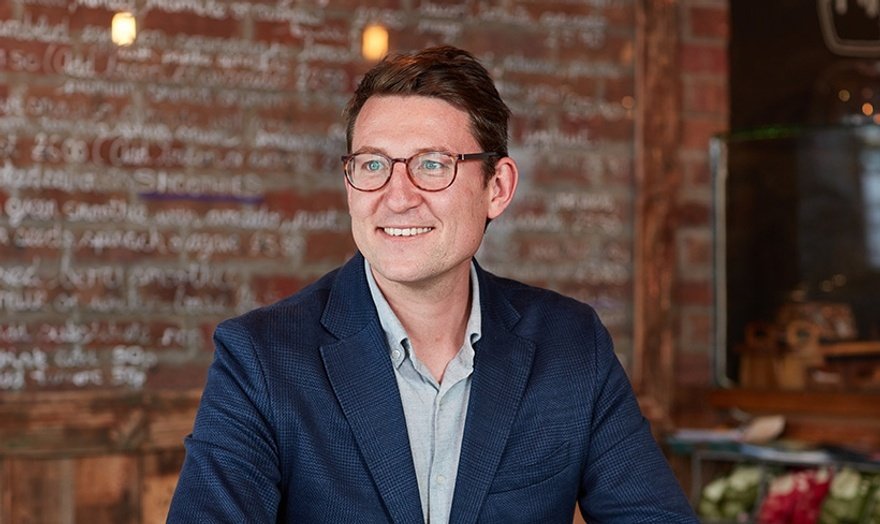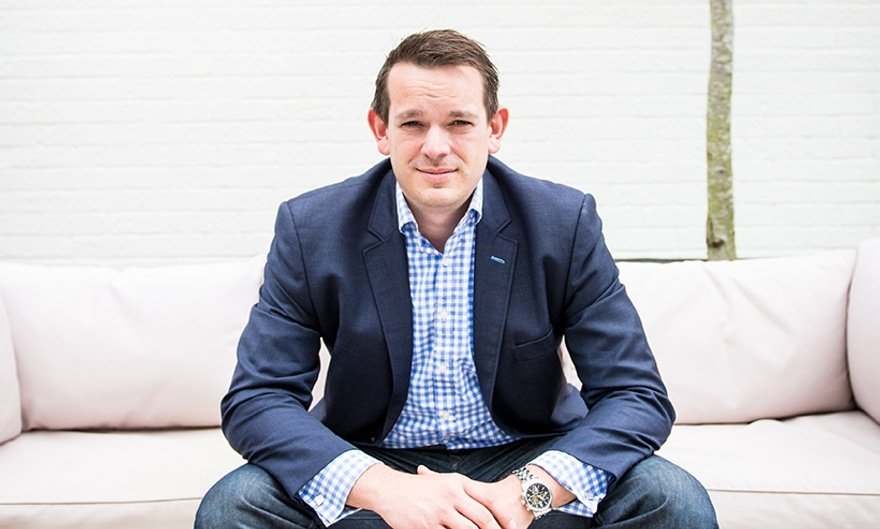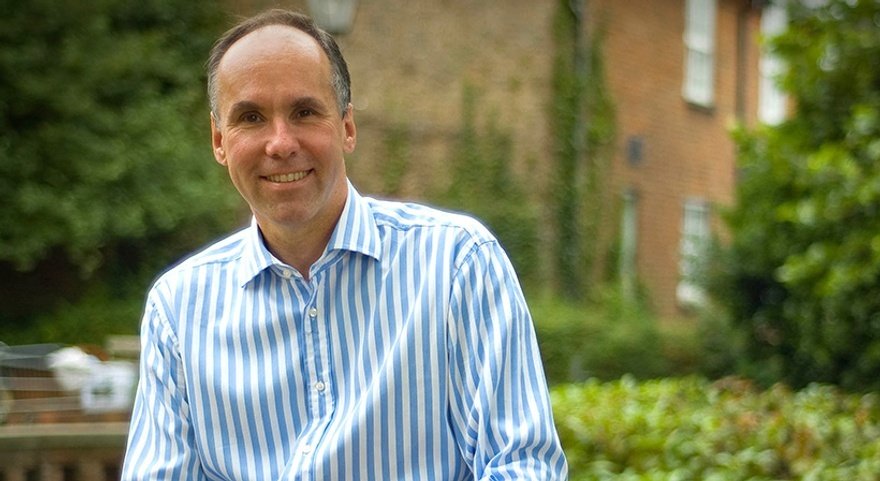As the government begins to encourage workers back into offices, Amanda Afiya catches up with the city caterers to find out how lockdown has affected their businesses and how they intend to adapt for the future
There's no getting away from it: the UK economy is in a perilous state. The impact of Covid-19 on businesses and our day-to-day lives is like nothing the world has ever seen. And while cases slowly start to climb again, and a vaccine for the virus continues to evade us, millions of people, who have been virtually captive in their homes since England, Wales, Scotland and Northern Ireland's respective lockdowns in March, continue to question their own safety.
The pandemic has given some people a chance to re-evaluate their lives. Working from home has brought a simpler life and autonomy to many traditional, office-based roles up and down the country. But for others, working from home has led to a huge wave of anxiety and loneliness. For those who crave routine and socialisation, the effects of not being able to return to the workplace have been almost too much to bear.
And for the businesses that support those offices – including the incumbent caterers, the local restaurants, cafés and hotels – the lack of footfall has wreaked havoc. According to data from the Centre for Cities, in the first two weeks of August only 17% of workers had returned to offices in cities.
In London, particularly in its financial districts and commercial hubs, there's little sign of tourists and very few office workers to be seen either. The streets and high-rise office blocks in the City and Canary Wharf – which until recently had enjoyed decades of construction, development and growth – remain eerily quiet.
"It's been the worst six months possible," says Chris Mitchell, managing director of the Genuine Dining Co. "After lockdown, we were down to 10% of our turnover without any ability to make money. We had to make masses of redundancies. Losing great people was not something we ever thought we would have to do. Our challenge has always been attracting the best people, not losing them."
Mitchell, who leads a business catering for 47 sites with a mix of clients ranging from legal firms to fast-moving consumer goods head offices, says it is difficult for him to put into words exactly how much the pandemic has affected the Genuine Dining Co. "But from a business that has been growing from day one, it will probably end up being 50% of the size it was six months ago," he confesses. "It makes starting up look simple."
For John Nugent, whose business Green & Fortune manages a variety of restaurants, bars, cafés and event spaces within three London venues – Kings Place, the Sea Containers building and Central Hall Westminster – the lockdown saw revenues plummet, too. "After taking on our third site at Central Hall Westminster this year, we were forecasting a buoyant 2020/21 on the back of a great finish to our financial year at the end of March," says the chief executive. "Overnight, our revenues dropped to zero."
In recent weeks, the government has been calling on parents to send their children back to school, and now it is encouraging employees to return to the workplace too, not least to help boost local – and national – economies. As Daily Mail columnist Richard Littlejohn starkly puts it, one man's working from home is another man's P45.
Writing for leading construction website Building, Alan Bainbridge, director of workplace and corporate real estate at the BBC, said that people are living in a time when the very existence and requirement for offices is being called into question. "This level of scrutiny, which I think is short-sighted and a knee-jerk reaction, would have been unthinkable just a few months ago," he said.
Working from home, he argues, tends to be "quite linear", while the physical office "is wonderfully discursive, enabling and conducive to chance interactions. A good workplace, with the right team caring for it, should be able to adapt to the changes brought about by the pandemic."
Winds of change
"Numbers in the City and Canary Wharf remain low, as the recovery isn't happening as quickly as everyone thought it would," says Simon Houston, who launched independent B&I caterer Houston & Hawkes in 2019. "However, I do believe that once schools are back, the weather starts to turn and the side-effects of working from home kick in, momentum will gather and the City will begin to feel more normal."
Houston doesn't believe there is enough of an incentive for companies to get their people back to work just yet, as the majority of work that's been done over the past few months has been about maintaining the status quo, "but there simply isn't a substitute for sitting around a table, planning as a team and seeing the whites of people's eyes. As the culture of a company that's been built over decades starts to dilute and dwindle away, competitive advantage will drop away too – and that will become a big incentive for companies to return to the workplace. After all, the culture of a business is defined by its people."
Nugent agrees. "You cannot create culture from home. Companies from almost all specialities need high levels of engagement and the best way of doing this is being among each other," he says. "Working from home can result in losing focus, and not having informal gatherings and conversations will lead to reduced communication among people. Potentially, it could lead to some very negative commercial outcomes."
In King's Cross, which has in recent years transformed into one of the city's most vibrant work environments, Nugent says office occupation is a shadow of its former self. "There is a significant reliance on the technology sector in the area, which is in no hurry to return to the workplace. That said, King's Cross is a leisure destination, too; with its open spaces and the canal running through the area, it has encouraged people to visit and explore."
Critical to employees returning to the workplace is safety and confidence that the right protocols are in place. John Bennett, co-chief executive of BaxterStorey, says that while it's important to encourage people back to work as the economy restarts, creating a secure environment that people are comfortable coming back to is essential. Clear signage on social distancing, one-way systems and hand sanitising stations have all become ubiquitous.
But while London has been particularly badly hit in terms of customer figures, Bennett reports a mixed economy throughout the UK. "In Northern Ireland, we have seen around 62% of business return, whereas in Scotland it's only 25%," he explains. "Generally, our central and north locations have been unaffected by the pandemic as that tends to be where our distribution and manufacturing-based clients are. And, looking ahead, we anticipate our business in the Midlands region to have 100% of sites open by October."
Meanwhile, BaxterStorey's client Amazon has been functioning at full capacity throughout the past six months, requiring the foodservice business to hire additional people to cope with demand. "And the Eat Out to Help Out scheme has been beneficial for our company in increasing customer confidence to return to our restaurants," says Bennett, adding that more than 500 locations signed up to the scheme and more than 165,000 customers in the business used it within its first few days.
Green shoots
Nugent is starting to see light at the end of the tunnel, too. At his Rotunda restaurant, situated in the multi-arts venue Kings Place and home to The Guardian newspaper, whose workforce is largely working from home, trade has been reasonable since its reopening in early July. "Initial nervousness from customers has dissipated and there is confidence in going out again. It has been a great learning curve and a positive experience due to the many new procedures in place, but there is also a changing level of engagement with the customer. We are seeing many new customers, yet we are still being supported by our loyal friends."
A concert programme starting soon and the reopening of schools will drive occupation levels further, he hopes. But Nugent says that he'll need Kings Place Events, his conference and events business within the building, to return "to get the engine fully running again".
Meanwhile, Ian Thomas, chief executive at Bartlett Mitchell, reports an increase in new business opportunities coming to the fore. "Clients are still moving, even if the offices are less occupied right now. We've also seen some old, pre-lockdown tenders unlocking, so there is progress, albeit slow," he says. He adds that during the height of the pandemic, the business was only running about 15% of its sites, in a very limited capacity. Latterly, this has grown to 40% of sites, with a reduced team and food offer across all of them.
Clients are also keen to go to market to discuss briefs where the previous relationships have broken down through the Covid experience, says Thomas. "This whole period has been incredibly testing for everybody, so there will be the acceptance that new ways of working are required, so companies need to be agile in their approach."
There will be the acceptance that new ways of working are required, so companies need to be agile in their approach
Like BaxterStorey, Bartlett Mitchell has seen a quicker return to the workplace in the regions – "we'd probably say that two-thirds of our business out of London is open or about to open imminently" – but, generally speaking, clients are doing phased returns, initially with critical teams, then with those who were struggling to work from home or chose to work in the office. "We are now seeing some clients instruct team members to return to the office, but we don't expect that to be fully realised until schools go back and childcare issues are resolved."
While the onset of the pandemic might have hurried things up, greater flexible working was always going to be on the cards, says Genuine Dining Co's Mitchell. "Flexible working has been around for years – it's probably been fast-forwarded by about five years, but it's not a new thing. As a result, the food offer really needs to be tailored towards a multifunctional space, and, in some places, it's already become more meeting space than canteen space, but we've been advocating that for a long time anyway."
Looking ahead, Houston believes there will be plenty of opportunities where clients have "unique and quite specific" requests, which he feels will appeal to the smaller, boutique caterers that can "flex their models more easily".
"The big contract caterers need big wins and it will be interesting to see how the big opportunities look post-Covid and how the commercial risk profile looks," he says. "But, having said that, I don't think there is going to be a lot of tendering going on this year. I think some contracts will just roll over and review once things settle down as clients will be able to build more accurate specifications.
If relationships have broken down during the lockdown period, clients will invariably review and test the market to make sure they have the right partner
"However, if relationships have broken down during the lockdown period, clients will invariably review and test the market to make sure they have the right partner to get through what will be a tough few years of recovery. If the City and Canary Wharf see working populations return to 60%-70% by the end of the year, that will be a positive step."
Thomas thinks things will start to change. Short-term, he says, the novelty of working from home has given some businesses a false sense of security, with high productivity levels and positive mental health due to the fabulous weather we've had. "However, we are already seeing a raft of negative quarterly results and big-name companies asking employees to get back to the office. It is no surprise that company culture, employee loyalty, team creativity and development of talent will be stifled," he says. "To quote Tim Oldman at [workplace benchmark] the Leesman Index, ‘you can't diarise serendipity'."
Chance meetings in the corridor or impromptu meetings cannot happen at home, concludes Thomas. "That's what sparks brilliant ideas or solves difficult problems. Company culture will be completely diluted, and long-term retention will be a challenge if things continue as they are."
Mitchell adds: "Pre-pandemic levels probably won't come back for a year, but I do see a return. And I also think the businesses that go back sooner, with fewer restrictions, will be more attractive to employees, particularly for the people who are craving normality."
The operators' view: finding the consumer, wherever they are
Keen to adapt to the marketplace, in June the Genuine Dining Co launched Genuine Delivers, a food delivery service for businesses where employees have returned to work but don't have in-house catering facilities. Serviced from the company's central production kitchen in Camberwell, the new business delivers food to companies in London and beyond that want staff to minimise contact outside the office.
"While it's been very successful and we think it will grow, the Genuine Dining Co is our core business and is where we want to see our main growth," says Mitchell. He says the purpose behind Genuine Delivers was to protect the company's team. And while it's largely aimed at workplaces that don't have catering facilities, Mitchell is bullish about upsetting any competition.
"We're not concerned about stepping on other caterer's toes – if they want to do the same, they should be able to do that. Other caterers need to do whatever they need to do. We're close with other caterers, but if someone's client wanted our services (that their caterer couldn't do), we would do it. I'm sure they would do the same."
And so they have. Throughout the period, Thomas says Bartlett Mitchell has gone into overdrive in terms of engagement with both clients and its teams. "The extent of the downturn has forced us to pivot our approach by looking at offering alternative solutions, some of which will be temporary, but some may stay with us for the long-term. One example is the recent launch of our BM Delivered service. We've launched this to offer clients an alternative solution to what we hope will be a service that is only required for the short-term."
Using the Bartlett Mitchell PearPay app to place orders, customers can order anything from breakfast and grab-and-go for restaurants or coffee bars to bento boxes for team or client meetings.
The consultant's view: do something different if you want to survive
Julian Fris, director at independent facilities management consultancy Neller Davies, says that while employees in workplaces haven't returned to the office as quickly as some would have hoped, the sector should see some upswing in September and more in January.
"We have recently facilitated a number of deals whereby the caterer has been retained on the basis that staff will return," he says. "We are trying to influence clients to think differently on the wider wellbeing and motivational benefits of catering for their workforces, especially if the high street takes even longer to recover."
While Fris believes there will be plenty of opportunities, such as greater collaboration and assisting the integration of a wider benefits package for employees, he thinks those operators that were struggling before Covid will find it difficult to get through this period if they don't do something different.
"The highly regulated businesses and the public sector, which are very cost-based, will also face increasing challenges as caterers may be more forthright in bidding, leaving only the larger companies to pitch for some contracts," he says.
With regards to contracts, Fris says that many of the nil-subsidy/commercial deals are converting back to cost-plus, but adds this could be time-limited. "One thing we have suggested is for contracts to have lower fees but include incentives, both financial and non-financial, where caterers can regain income. That way, they can work better together with the client in making the catering a success. This is almost a win together/lose together approach."
He adds: "Caterers are already doing some very interesting things. We've seen home deliveries, coffee clubs, virtual events with products sent to homes, payment apps, etc. We've also seen closer collaboration through initiatives such as the Food Service Circle. Innovation and collaboration will help us through this period."
Continue reading
You need to be a premium member to view this. Subscribe from just 99p per week.
Already subscribed? Log In








